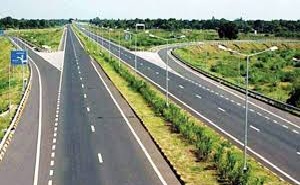Prime Minister Narendra Modi laid the foundation stone for nine national highway projects worth over Rs 14,258 crore in poll-bound Bihar on Monday and launched optical fibre Internet services to connect the state’s all 45,945 villages.
Asserting that the pace of highway construction has doubled since his party came to power in 2014 and expenditure on it rose by five times since then, Modi said at a virtual event that Rs 110 lakh crore will be spent on infrastructure in the coming four-five years, with Rs 19 lakh crore allocated for highway development alone.
The nine highway projects in Bihar involve a road length of about 350 kilometres.
Launching Internet services through optical fibres, he said the day is historic for not only Bihar but the country as well because the government is taking major steps to make villages the mainstay of ‘Aatmanirbhar Bharat’.
“This is starting from Bihar today,” the prime minister said, adding under this project, six lakh villages would be provided Internet services through optical fibre cable in 1,000 days.
He had in his August 15 address to the nation announced the plan to link over six lakh villages in the country with optical fibre connectivity in 1,000 days.
The prime minister has inaugurated or laid foundation stones for many development projects in Bihar in the last few days.
The Election Commission is expected to announce the schedule for the assembly elections there soon.
Modi said it was inconceivable a few years ago that the number of Internet users in rural areas would be more than those in the urban areas. India has become a leading nation in the world in terms of digital transactions, with their value through UPI totalling Rs 3 lakh crore in August alone, he said.
With the increase in Internet usage, it is also necessary that the villages have good quality and high-speed Internet, he said.
The prime minister said his government aims to provide urban facilities in rural areas of the country.
History testifies that only the countries which have invested on infrastructure have developed, he said, lamenting that earlier governments did not pay much attention to it except the Atal Bihari Vajpayee government which put development at the centre of its politics.
He said the poor and farmers benefit most from infrastructure development.
Asserting that his government’s approach is to develop a multi-modal transport network where each mode of transport is linked to the other, Modi said Bihar is also benefiting from these efforts.
He noted that under the prime minister’s package announced in 2015, building over 3,000 kms of national highway was proposed.
In Bihar, the work on the national highway grid is progressing at a fast pace with five projects underway to connect the eastern and western parts of the state with four lanes and six projects underway to connect north with south India.
Modi said all rivers in the state will have bridges conforming to 21st-century specifications and all major national highways will be widened and strengthened.

